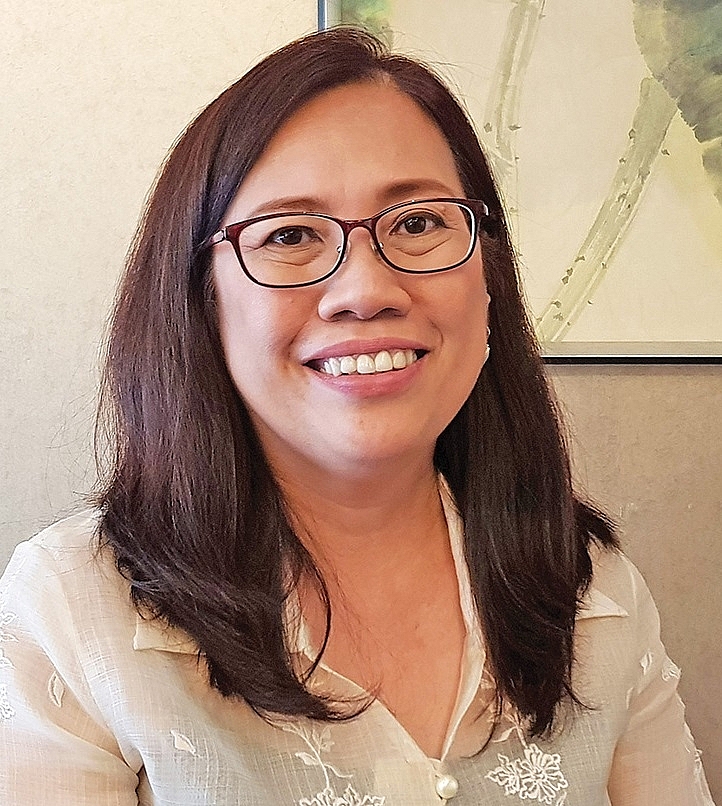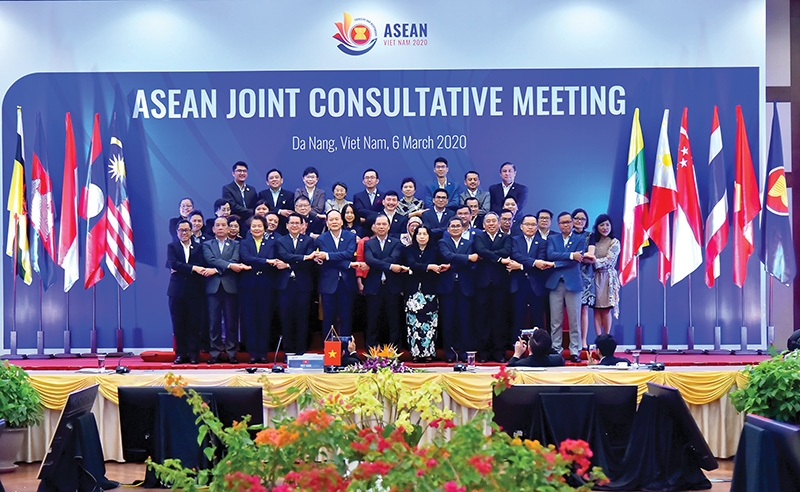ASEAN united in overcoming coronavirus pandemic threat
 |
| Lan Mercado, regional director of Oxfam in Asia |
The number of active COVID-19 patients in the ASEAN passed 10,000 at the beginning of last week. As a collective, the ASEAN represents nearly 650 million people, and with more of them being infected with each passing day, the bloc, its people, its economies, and way of life are increasingly at stake.
The ASEAN chair’s statement last February rightly called for “a cohesive and responsive ASEAN” in responding to the pandemic. The statement underlines the need to act together if the bloc is to successfully tackle this crisis.
Time to act
Indonesia is calling for a special summit on a regional COVID-19 strategy. The imperative of the hour is a well-articulated ASEAN response plan enacted immediately, addressing the health, humanitarian, social, and economic needs of the region’s people in line with “an orchestrated response and collective action of the entire bloc in curbing the spread of the disease,” as outlined in the ASEAN chair’s statement.
The existing healthcare infrastructure in many member states, epitomised by long waiting queues and low-quality care, will need significant ramp ups to cope with the pandemic. The ratio of doctors is at eight for 10,000 people, and out-of-pocket expenditure for healthcare is at 44 per cent in the region’s five most populous nations.
Current conditions paint a grim picture for more than 36 million people in Southeast Asia who live in extreme poverty, earning under $1.90 a day. A 20 per cent loss of income due to the current crisis may push 60 million people in East Asia and the Pacific into extreme poverty and another 160 million into surviving on less than $3.20 a day.
The crisis is likely to further imperil those already struggling with poverty, vulnerabilities, and discrimination disproportionately. Not only because they will struggle to get good quality healthcare but also because they are more likely to be first-line casualties of the ensuing economic crisis. Informal and daily wage workers and women and girls are likely to be hit the hardest.
However, given the unforgiving and undiscriminating nature of a pandemic, none of us – no individual, no community, no nation or region – is safe unless all of us are. Thus, the actions must be cohesive with the ASEAN being the platform. Tackling issues of inequality is critical to containing the outbreak. Prioritising assistance to those most at risk including frontline responders, wage workers, refugees, and migrants is critical to recovery for all of us.
The World Health Organization’s figures indicate that countries with stronger public healthcare systems like Singapore, Thailand, and Vietnam are more successful at case management. Meanwhile, Indonesia has amped up health spending to the tune of $4.5 billion.
As part of economic stimulus packages totaling $150 billion to date, Malaysia, the Philippines, Singapore, and Vietnam are among the bloc’s countries that have significant social protection packages.
Swift action, that takes into account the needs of all people, especially those likely to be hit harder, will demonstrate the ASEAN’s commitment to “a peaceful and safe living environment for the people”. Not only the recovery from the pandemic but also the future of all member states hinges on the decisive action following “the ASEAN’s commitment to collectively respond to the outbreak of COVID-19”.
 |
| ASEAN member states have held joint meetings with fighting COVID-19 being one of the top discussions |
Things to do
To fulfill the commitments, protect the lives of and ensure the wellbeing of its people, it is necessary for the ASEAN to act in unison and serve as a platform for openly sharing knowledge and co-ordinating cohesive policies. Furthermore, the bloc should set up a well-resourced response where no one is left behind through an ASEAN Emergency COVID Fund, pooling contributions from member states and dialogue partners, and to build up capacities of weaker public health systems to protect the entire region.
Besides these, the ASEAN needs to put in place stronger frameworks and fair and transparent structures to deal with transboundary risks now and to prevent future pandemics in the region. Lastly, there needs to be a strong support for small and medium-sized businesses and their workers by mobilising resources from financial institutions for crisis response and its recovery.
In addition, it is necessary for ASEAN member states to take the following decisive actions:
* Immediately upscale testing and treatment facilities and make them available to all people in need, especially poor and vulnerable communities;
* Provide healthcare workers and others on the frontline with adequate protection, equipment, and support to deliver essential services;
* Ensure all people affected, especially locked down communities, to have enough food and essentials. All workers who lost their income require social protection;
* Enact solutions for the special protection and wellbeing needs of migrant workers, displaced people, and others left marginalised;
* Enact measures to promote women’s voices and leadership, and deliver gender-sensitive assistance to prevent gender-based violence; and
* Engage with civil society in impact assessments and response implementation to make the needs of vulnerable groups heard and met.
Cohesive and responsive
In delivering a strong response, the region will benefit from strengthening its mechanisms. The ASEAN chairman’s statement tasked a co-ordinating role for its Health Sector mechanism on border crossing, meaning consular services and transportation. However, a cohesive and holistic approach that looks at all aspects of the health and safety of people is the need of the hour. The ASEAN Coordinating Center for Humanitarian Assistance (AHA Center) already has in place the mandate, network, and partnerships to rapidly enable an emergency response.
The ASEAN’s Health Sector and AHA Center can play a pivotal role in regional co-ordination and co-operation of a united COVID-19 response. The ASEAN Business Advisory Council will prove to be a useful partner in engaging the private sector in delivering essential services and supplies, and to support displaced workers in their value chains.
The ASEAN Coordinating Council (ACC) has been tasked to monitor the collective response, present subsequent recommendations, and report to the 36th ASEAN Summit in June. To put out the immediate fires of the pandemic and to move beyond, the ACC must take into account the views of impacted communities, emergency responders, the civil society and women’s rights organisations, as well as other partners in the region.
Meaningfully working together for a cohesive response backed up by an emergency fund, right policies, and open and honest collaboration will go a long way in suppressing the outbreak, especially for the bloc’s least developed member states as well as its most marginalised communities.
The ASEAN, whose 36th Summit on April 8-9 was rescheduled as a result of the pandemic, holds the power to save millions of lives. Only with bold and decisive actions can we stop a catastrophe and shift towards a sustainable, safer, and more equal Southeast Asia.
| As ASEAN chair, Vietnam is expressing its active role in supporting the region’s member states and partners in fighting against the COVID-19 disease. On April 2, Vietnam presented 500 “Made-in-Vietnam” RT-PCR real-time COVID-19 test kits to the Indonesian government. On April 3-4, Vietnam supported Laos and Cambodia medical equipment worth $100,000 each to aid their fight against the pandemic. The equipment included masks, protective suits, COVID-19 test systems and kits. On April 7, Vietnam presented 550,000 antibacterial fabric masks to France, Germany, Italy and the United Kingdom. Vietnam also supported the United States with 450,000 “Made-in-Vietnam” protective suits. Also on April 7, ASEAN’s health ministers convened through a video conference to intensify regional co-operation with various stakeholders as member states step-up measures to control the spread and mitigate the impact of the pandemic. The ministers resolved to enhance collective responses through further strengthening regional co-operation on risk communication to avert misinformation and fake news; continue sharing information, research and studies in an open, real-time and transparent way; co-ordinating cross-border health responses; scaling-up the use of digital technology and AI for efficient information exchanges; and strengthening and institutionalising preparedness, surveillance, prevention, detection and response mechanisms of the ASEAN with other partners. Meanwhile on April 9, the 25th Meeting of the ASEAN Coordinating Council (ACC) was also held online with the participation of foreign ministers of 10 ASEAN member countries and the ASEAN general secretary. The ministers approved the recommendations of the ACC Working Group on Public Health Emergencies. The recommendations focus on three aspects: (i) control and prevent the spread of disease; (ii) support the peoples of ASEAN countries affected by the pandemic, including consular assistance to ASEAN citizens living, working and studying in each other’s member states and in third countries; and (iii) mitigate the socio-economic impacts of the pandemic. On April 10, Vietnam presented $50,000 to Myanmar for the latter to fight against COVID-19. The ASEAN Special High-level Video Conference and the ASEAN+3 Special High-level Video Conference on responding to COVID-19 will be organised on April 14. Prime Minister Nguyen Xuan Phuc will host these events as chair of the ASEAN in 2020. |
What the stars mean:
★ Poor ★ ★ Promising ★★★ Good ★★★★ Very good ★★★★★ Exceptional
 Tag:
Tag:
Themes: Together We Win
- Greater Mekong Subregion executives to discuss sustainable tourism
- TCPVN donates 1,200 medicine bags to COVID-19 patients in southwest
- AB InBev supports orphans with scholarships amid COVID-19
- Evaluating the reach of support in turbulent times
- Gamuda Land grants “Back to School” scholarships to support disadvantaged students
Related Contents
Latest News
More News
- Japanese business outlook in Vietnam turns more optimistic (January 28, 2026 | 09:54)
- Foreign leaders extend congratulations to Party General Secretary To Lam (January 25, 2026 | 10:01)
- 14th National Party Congress wraps up with success (January 25, 2026 | 09:49)
- Congratulations from VFF Central Committee's int’l partners to 14th National Party Congress (January 25, 2026 | 09:46)
- 14th Party Central Committee unanimously elects To Lam as General Secretary (January 23, 2026 | 16:22)
- Worldwide congratulations underscore confidence in Vietnam’s 14th Party Congress (January 23, 2026 | 09:02)
- Political parties, organisations, int’l friends send congratulations to 14th National Party Congress (January 22, 2026 | 09:33)
- Press release on second working day of 14th National Party Congress (January 22, 2026 | 09:19)
- 14th National Party Congress: Japanese media highlight Vietnam’s growth targets (January 21, 2026 | 09:46)
- 14th National Party Congress: Driving force for Vietnam to continue renewal, innovation, breakthroughs (January 21, 2026 | 09:42)






















 Mobile Version
Mobile Version